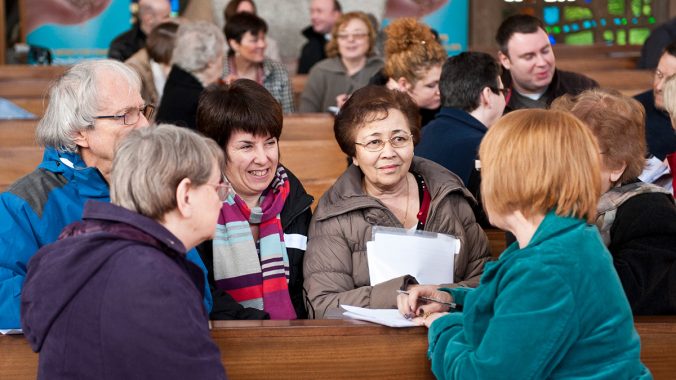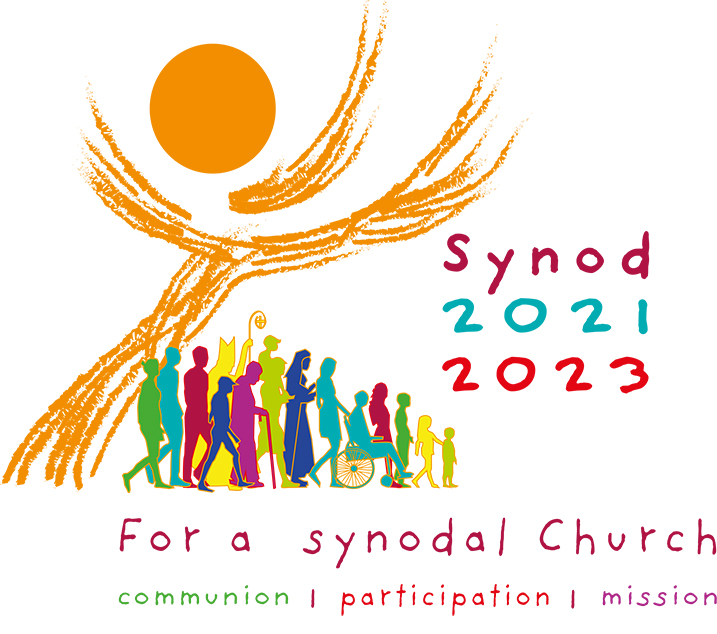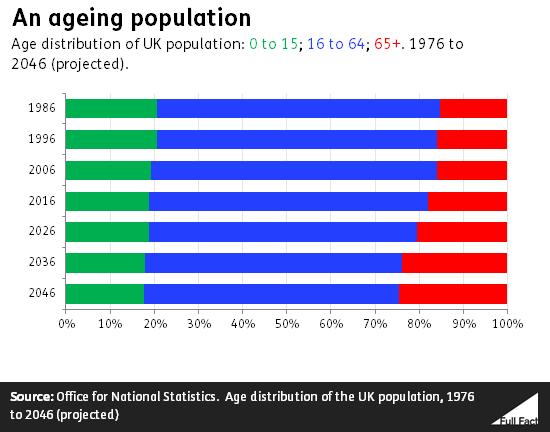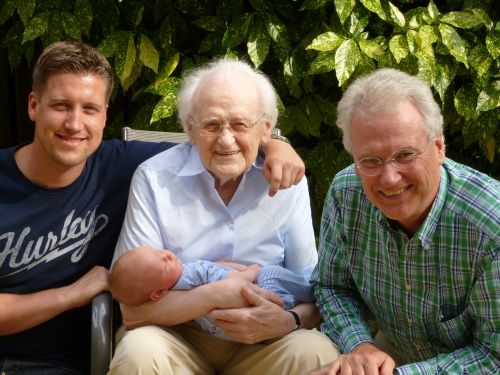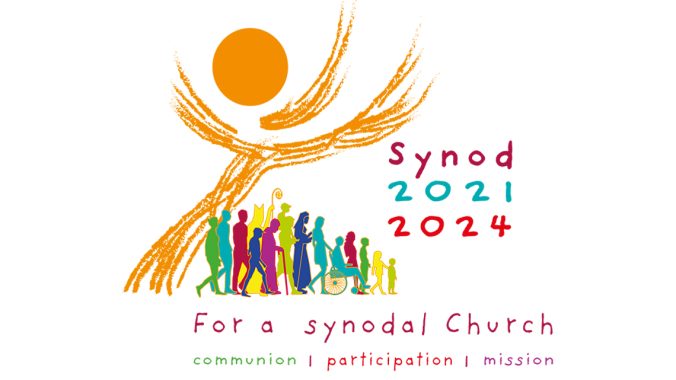
Many of us in our parishes in the Diocese of Leeds had an opportunity before the October Synod 2023 to discuss some of the issues facing the Catholic Church.
Our feedback was sent to the Diocese to be considered, to go forward ultimately to the Synod. So, instead of being a top- down process, it started at the grass roots around the world and responses were synthesised – all brought together – at diocesan, Bishops’ Conference and Continental levels. Our Bishop Marcus Stocks along with John Wilson, the Archbishop of Southwark, represented the Bishops’ Conference at the Synod, and a number of lay people, including Professor Anna Rowlands of Durham University, went to Rome to take part in the Synod. This inclusive approach was promising.
Preparation did not happen in some parishes, but it is not too late to become involved now and encourage others to do so. The Synod Part 2 meets in Rome in October 2024. Inevitably some ideas in October 2023 got diluted or left out during the synodal process, but I think us older people have become accustomed to knowing this is what can happen in all walks of life, and to continue to concentrate on the important things – and not to give up.
I hope that if you read through to the end of this Reflection you might find some aspects to feel engaged and optimistic about…
What relevance does this all have for us older people? I think it is important for us to be involved in this worldwide consideration of the future facing the Church for a number of reasons.
The Synod Part 2 takes place in October 2024 so there is not much time. There are a number of worthwhile issues to consider that were raised last October – to feed back to Rome in the autumn. The Synodal process has emphasised the importance of priests and people listening, speaking and working together, which is key for the future.
I know many of us acknowledge the future of the Church will be in the hands of younger generations, but we have a voice too…and hugely valuable experience to impart! Older people have years of experience in our families, parishes, charities and church organisations and encouragement to offer to younger people during this synodal process. We are the ones who have experienced the reforms of Vatican 11 in the 1960s and can see what still needs to happen.
A Summary Report of the First Session of the Synod was written, and I quote from its 41 pages below.
Discernment
It was proposed that “each local church equip itself with suitable and trained people to facilitate and accompany processes of ecclesial discernment.” (page 8.) “Among all the baptised there is a genuine equality of dignity and a common responsibility for mission, according to each person’s Vocation. By the anointing of the Spirit who “teaches all things’ (1Jn.2:27) all believers possess an instinct for the truth of the Gospel, called sensus fidei,” (page 9)…which can lead to a consensus of the faithful (consensus fidelium),” as at the Synod, “which is a sure criterion for determining whether a particular doctrine or practice belongs to the apostolic faith “(page 9.) Stated at the beginning of the Report, this potentially allows for inspired thinking at every level from lay people and clergy. It is encouraging for the future but we need to act on it now.
Throughout the Report references are made to more decision making in the future at diocesan level, rather than in Rome. Pope Francis has previously said this e.g. over pastoral decisions being permitted at diocesan level about divorced and remarried Catholics receiving Communion. It seems to me that he has continually been trying to devolve decision making during his papacy. Here it is reiterated and timely for inspired, sensitive to culture, inclusive, localised thinking. In my view we need to encourage our Bishops and people to work together on these ideas.
Women in the Church
It was stated (page 21) that “women constitute the majority of those who attend churches.” However, “clericalism, machismo and inappropriate use of authority continue to scar the face of the Church.” (page 22). There is a hint of considering inclusive language in liturgical texts (Page 23). Research on women deacons is to be continued and hopefully results presented next October. There have already been two Commissions which have not yet agreed to women deacons. (I know of many women who support women as deacons, while not wanting to clericalise the diaconate.) Women being included on theological programmes, seminary teaching and women judges in canonical trials are proposed. (page 23.) If we agree with these ideas, we can continue to voice them.
Seminary Training
Seminary Training should be more “linked to the daily life of communities,” so there was some mention of reform (page 25.) The Report says compulsory celibacy needs to be further discussed. I have been told that married priests are mentioned once, in the 41 pages of the Summary Report but I cannot find the reference.
Clerical abuse
The potential conflicting difficulty in abuse cases where a Bishop is both father and judge was raised (page 28.) However, dealing effectively, promptly and consistently with clerical abuse has to be continually tackled as it is so damaging and is a top priority to people of all denominations and faiths.
Attentive listening
Synodal working and the more transparent and active relationships between the Roman Curia, Cardinals, Bishops ” and more attentive listening to the voice of the local churches” was raised (page 29.)
Formation of all
Education for all, including lay people was mentioned and is a theme that, in my experience, is expressed all the time in meetings. How to listen to each other, especially with complex issues including painful excluding issues, was also raised.
Optics
For me, one of the most promising pointers from the Synod was that Bishops, women and men met in small groups to listen and speak in turn at round tables. This was instead of sitting in serried rows at previous Synods to listen, as spectators. There were some speakers in October, but apparently people remained at tables. This, to me, was a powerful symbol of the Synod.
So, where does this leave us older people?
A lot of preparatory work, offered to all parishes, but which included some of us, was undertaken, and the feedback we got from the first parish sessions was useful. We didn’t get feedback from our second parish sessions, I understand this was because the administration of it became overwhelming. However, feedback would have been useful for each of our parishes who took part.
Those who attended the Synod in Rome worked hard at a large number of issues. Christopher Lamb, until recently Rome Correspondent at The Tablet, described it as a consultative rather than a deliberative assembly. This might account for the numerous proposals raised, rather than decisions made. Is there time in our Diocese to come up with draft action plans for some of those proposals by next October for the Synod Part 2?
I think many of us over the years have raised the need for more adult theological and pastoral education locally and globally. There are some courses available but they are expensive, at a distance and few locally. Let us hope this situation changes soon as there are fewer Priests and Religious working in the Diocese, and an ever greater need for more lay people (paid and voluntary) working at all levels.
Mention of the role of women and the presence of around 40 women attenders with voting rights was, personally to me, very welcome. Ideas of how to include more women at all levels were not clear but is happening in some of the Departments in Rome. However, yet again the proposal for women deacons was, for the third time, deferred for more discussion. Deciding how women can be assimilated into the current clerical structures has to be worked out without adding to clericalism, but decisions need to be made soon either way. Many younger women, with this kind of calling, accustomed to equal opportunities in secular life are walking away.
The use of exclusive language about ‘men and brothers’ in liturgical readings to congregations with a majority of women, in my view, has to change now. Many of us already make inclusive language changes but this needs to be approved officially and the sign it would give would be powerful.
To conclude, for many of us these issues have been raised before. For us older people we have the life experience and some acquired confidence to encourage our parishes and priests to discuss and act on these issues. This can be done formally at diocesan level, Parish Pastoral Councils, parish meetings and in homilies. It can also be raised informally wherever we are at: after Mass at coffee, at prayer groups, with friends and people we don’t yet know around us. We have now been given the opportunity to speak and listen to each other, and to try and give some feedback to parishioners, priests and our Bishop about what we think and feel.
What do you think?
Pippa Bonner, GOG Trustee January 2024

